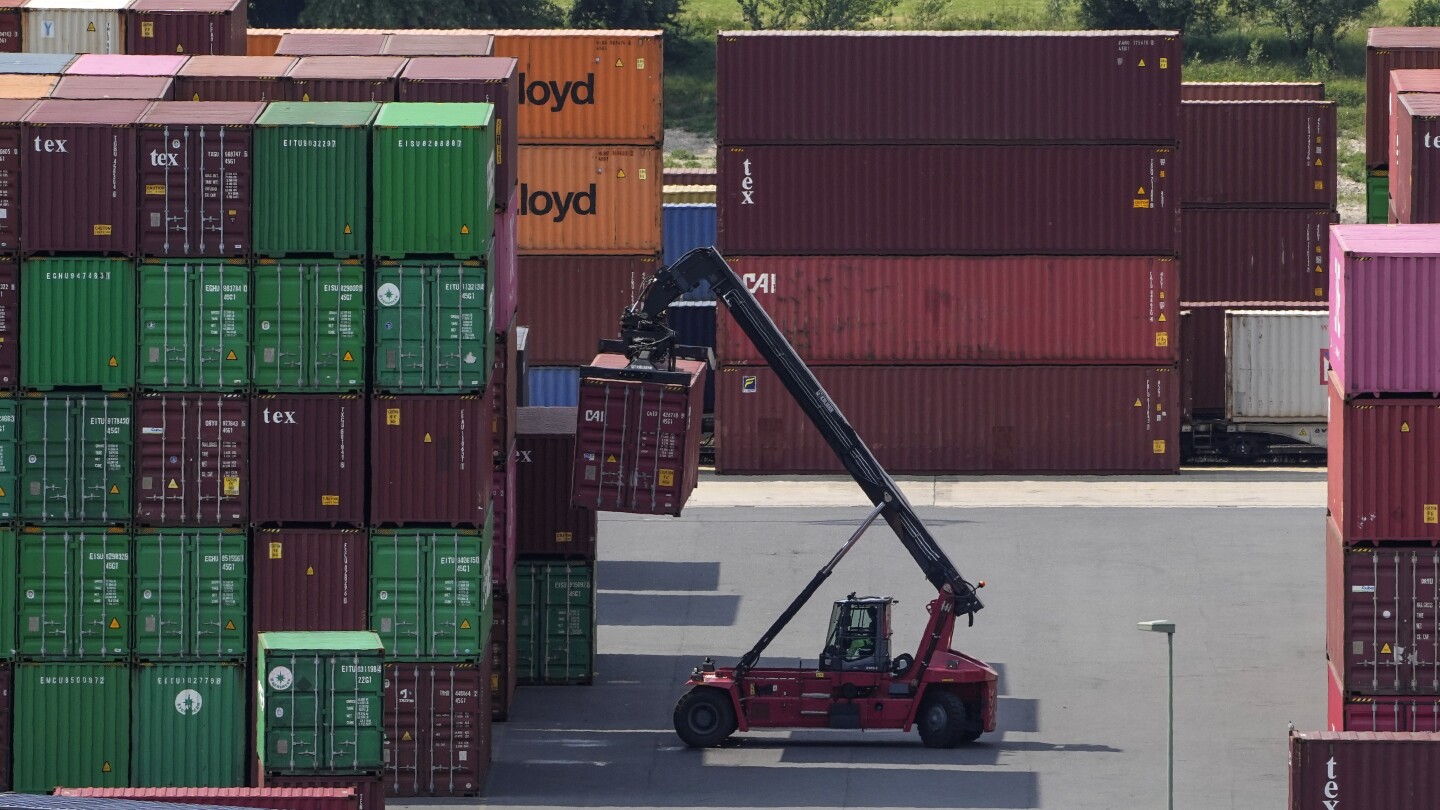BERLIN (AP) — Germany’s economy is likely to shrink again slightly in the current fourth quarter, the country’s central bank said Monday, while a survey showed business confidence retreating unexpectedly.
Europe’s biggest economy contracted by 0.1% in the third quarter after growing by the same amount in the previous three-month period, according to official figures.
The Bundesbank said in its monthly report that “real gross domestic product in Germany is likely to decline again slightly in the fourth quarter of 2023” as a result of weak performances in industry and construction
Two consecutive quarters of contraction is a common definition of recession, though the economists on a panel that declares recessions in the eurozone use a broader set of data, including employment figures.
Germany is the only major economy expected to shrink this year, according to the International Monetary Fund, which foresees a decline of 0.5%. The German government has forecast a decline of 0.4%.
The economy has been weighed down by high energy prices, global economic weakness and interest rate hikes to fight inflation. Those problems recently have been joined by a home-grown budget crisis that forced the government to draw up a package of measures to cut subsidies and some spending to comply with Germany’s tight self-imposed restrictions on running up debt.
Germany has also been grappling with other issues such as an aging population, lagging use of digital technology in business and government, excessive red tape that holds back business launches and public construction projects, and a shortage of skilled labor.
Also on Monday, the Ifo Institute said that its closely watched business confidence survey declined from 87.2 points in November to 86.4 this month. That defied economists’ expectations of a slight increase to 87.7.
Managers’ view of both their current situation and the outlook for the next six months darkened. The survey is based on monthly responses from about 9,000 businesses across various sectors.
“The fiscal woes of the last month have clearly left their mark on the German economy, with the country’s most prominent leading indicator today showing just how difficult it will be for the economy to bounce back,” ING economist Carsten Brzeski said.

